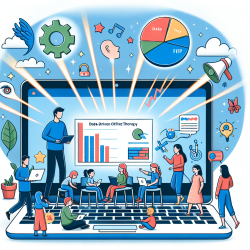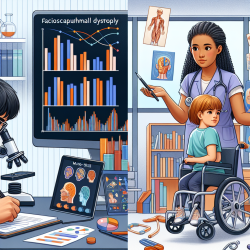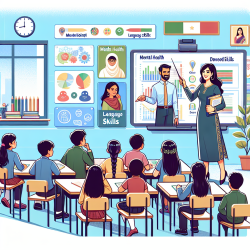Introduction
In the realm of special education, Individualized Education Plans (IEPs) serve as crucial roadmaps tailored to the unique needs of each child. However, the process of creating and managing these plans can often leave educators and administrators feeling overwhelmed and lost. At TinyEYE, we believe that leveraging data-driven online therapy can transform IEP planning and meetings, resulting in improved outcomes for children.
The Role of Data in IEP Planning
Data is a powerful tool in speech-language pathology and special education. By collecting and analyzing data on a child's progress, therapists can make informed decisions about the most effective interventions. This data-driven approach not only ensures that each child's needs are met but also provides tangible evidence of progress, which is invaluable during IEP meetings.
For instance, online therapy platforms like TinyEYE offer robust data tracking capabilities, enabling therapists to monitor a child's progress in real-time. This information can be seamlessly integrated into IEP documents, providing a clear picture of the child's strengths and areas for growth.
Benefits of Online Therapy in IEP Meetings
Online therapy offers several advantages that can alleviate the challenges often associated with IEP meetings:
- Accessibility: Online therapy breaks down geographical barriers, ensuring that children in remote areas have access to quality services.
- Consistency: Regular and consistent sessions are possible, leading to more reliable data and better outcomes.
- Collaboration: Online platforms facilitate collaboration between therapists, educators, and parents, ensuring everyone is on the same page during IEP meetings.
- Customization: Therapists can tailor sessions to meet the specific needs outlined in the IEP, ensuring targeted intervention.
Empowering Educators and Regulators
For government health regulators, understanding the potential of online therapy in IEP planning is crucial. By embracing technology and data-driven practices, regulators can help shape policies that support innovative approaches to special education. This, in turn, empowers educators to deliver personalized and effective support to children, ultimately leading to better educational outcomes.
Conclusion
At TinyEYE, we are committed to inspiring change in the way IEPs are developed and managed. By harnessing the power of data-driven online therapy, we can provide educators, parents, and regulators with the tools they need to create effective and individualized plans for every child. Together, we can ensure that no child feels lost in the system and that every child has the opportunity to succeed.










